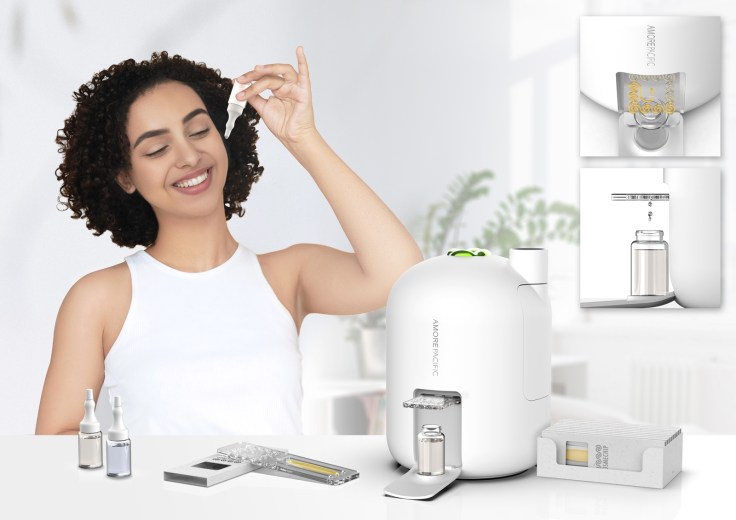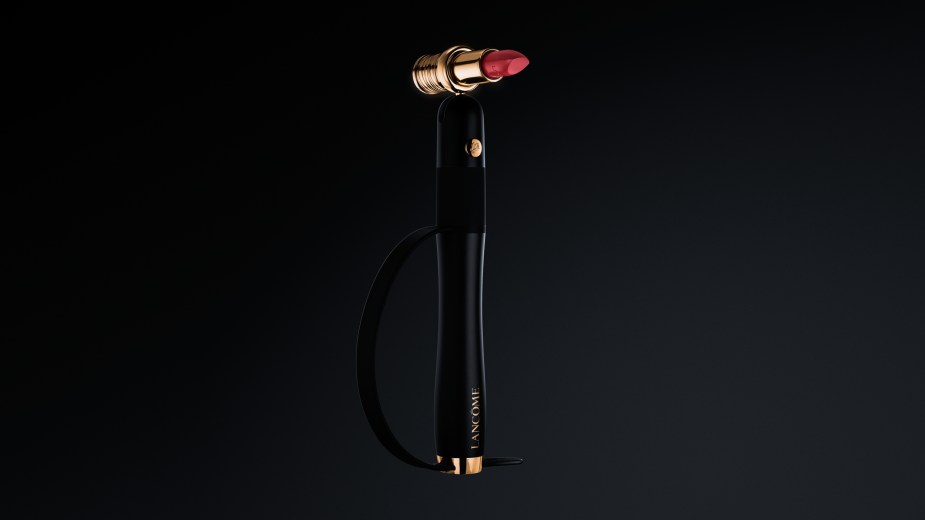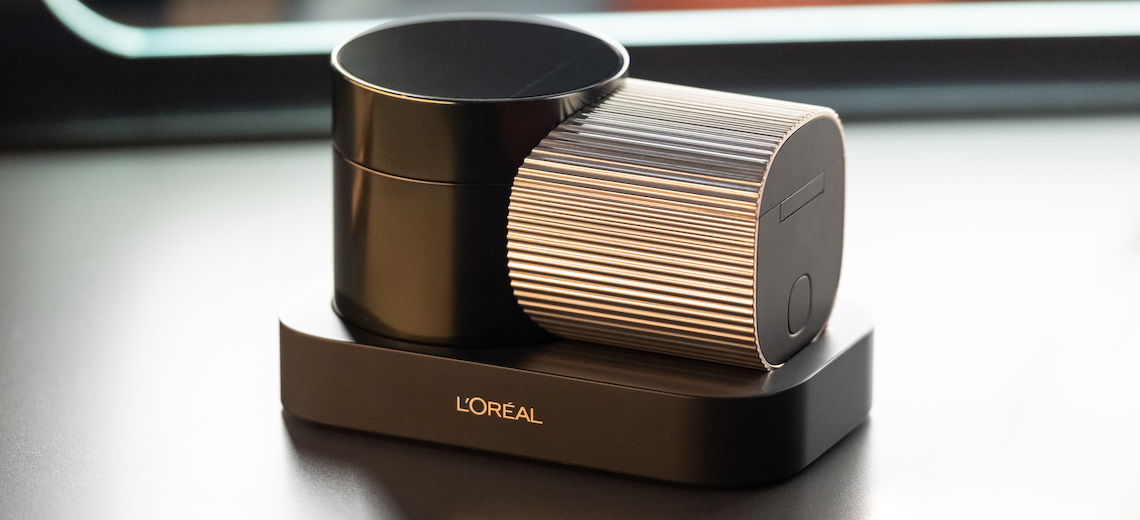
At this year’s Consumer Electronics Show in Las Vegas, beauty gadgets once again join smart TVs, laptops and home robots on the convention floor.
With major companies like L’Oréal Group and Amorepacific regularly introducing new technology, beauty tech’s presence remains constant at the Consumer Technology Association’s annual event. This year’s show, running January 5-8, highlights beauty launches that use AI technology to tap into themes including custom product blending and computerized makeup application.
Korean beauty conglomerate Amorepacific received the CES Innovation Award for the fourth consecutive year this year for two of its launches focused on personalized products. Its Tonework Authentic Color Master allows users to scan their face. Using AI facial recognition technology, it can create custom foundations and lip shades with its robotic arms. Meanwhile, the brand’s at-home Cosmechip device creates personalized skincare by allowing users to input dry “chips” of skincare ingredients and water into the device to create skincare products. skin on the spot.

“Global customers are now creating ‘hyper-personalization’ and ‘me-centric’ trends, and the tailored beauty market has great growth potential supported by remarkable development of beauty technologies,” said Park Youngho. , director of the Amorepacific Research and Innovation Center.
Meanwhile, the L’Oréal Group’s CES launches focus on automatic makeup application with two prototypes announced on January 3. The company’s HAPTA wearable device offers computerized lipstick application for people with limited hand and arm mobility.
“For L’Oréal, the future of beauty is inclusive. And this future will be more accessible thanks to technology,” said Nicolas Hieronimus, CEO of the L’Oréal Group, in a statement about the device.
The technology used in the device was created by Verily, the health technology company of Alphabet Inc. It was first created by Verily for the company’s Liftware dining utensils, which are designed to automatically stabilize when used by people with tremors in the hands and limited mobility. The lipstick applicator uses the same smart motion controls and provides customizable attachments to enhance range of motion.

The company also released a prototype for the eyebrow makeup application called Brow Magic. Users scan their face with L’Oréal’s proprietary Modiface beauty app and select their ideal brow shape, thickness and effect. They can then hold the device to their face, where 2,400 nozzles “print” 1,200 drops per inch of brow makeup to create the look. Using technology from Prinker, a non-permanent tattoo startup, the device’s brow art can be washed out with regular makeup remover.

Some beauty prototypes presented at CES will hit the market. The L’Oréal Group will make its HAPTA device available through Lancôme this year, with the Brow Magic tool “expected to launch in 2023,” according to the company’s press release.
Meanwhile, Amorepacific has implemented multiple technologies introduced by CES in stores over the years. Customers can already test drive Tonework technology at stores across Seoul, including its Laneige showroom in the Myeongdong shopping district, its Etude store in Sinchon, its futuristic Amore Seongsu flagship store and Amorepacific headquarters. Park said the company is focused on “expanding customer touch points for personalization services, in collaboration with our brands.”
CES prototypes reaching the market have had mixed results. Procter & Gamble’s $600 Opte skin care device, for example, is winding down after hitting the market in 2020. First unveiled as a prototype at CES two years earlier, Opte initially received buzz like the winner of the 2020 CES Innovation Award, multiple Allure Best of Beauty Awards, and a Time Best Inventions Award.
Opte’s website claims that the company has “decided to pause” its business and that its $99 serum refill kits will be available until January 15, 2023. The brand’s Instagram account is receiving comments from angry consumers who they paid a high price for the device. One commenter noted that they only bought the device last year, and another stated that it’s “not right” to end refills because “it’s an expensive tool.”
The L’Oréal Group, which has been rolling out prototypes at CES since founding its Global Technology Incubator in 2012, has also brought products from years past to market. Her $299 YSL Beauty custom lipstick maker is listed on the brand’s site, but is currently not available for sale. Meanwhile, Neutrogena’s MaskID system for custom sheet masks was unveiled at CES in 2019 and will launch in Q3 2020. The product is still featured on the Neutrogena site with a registration page, but is not available for purchase. tidy.
Source: news.google.com